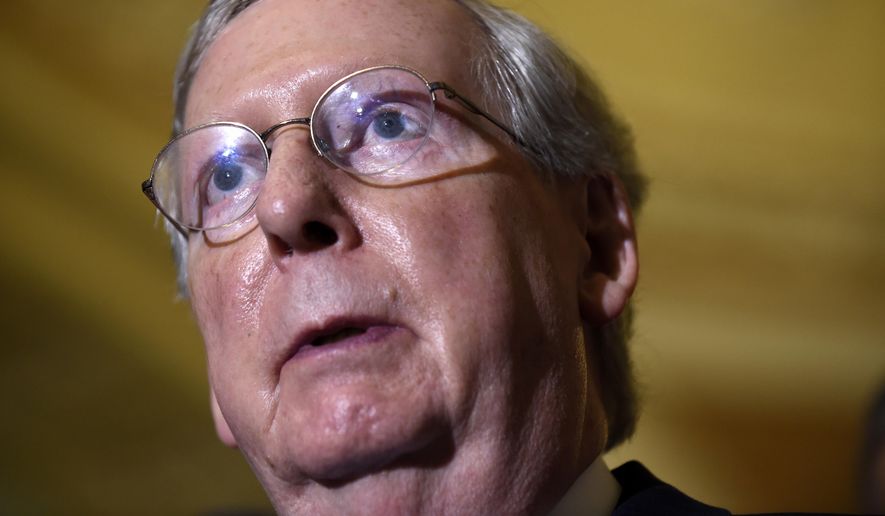Senate Majority Leader Mitch McConnell and a top Democrat said Tuesday they’ve struck a deal to fund road projects for years to come, cuing up a fast-moving debate ahead of a July 31 deadline to infuse cash into the nation’s highway trust fund.
Mr. McConnell, Kentucky Republican, said a procedural vote on the highway bill he brokered with Sen. Barbara Boxer, California Democrat, will be delayed until the late afternoon as leaders go over the details with their respective parties at weekly lunches.
The bill is a six-year authorization, although lawmakers were only able to cobble together enough money to fund the first three years.
“Senators from both parties know that a long-term highway bill is in the best interest of our country. So we’ll continue working together to get a good one passed,” Mr. McConnell said.
“It is a breakthrough,” added Mrs. Boxer, the top Democrat on the Senate Environment and Public Works Committee.
Already, senators from both sides of the aisle are eying the must-pass bill as a vehicle for their own priorities.
Conservatives want to ding Obamacare and strip federal funding from Planned Parenthood, while will most Democrats and some Republicans to revive the federal Export-Import Bank, an agency that for decades financed the sale of U.S. goods overseas but faces a slow death after lawmakers failed to renew its charter June 30.
Conservatives say the bank handed out “corporate welfare” and should fade away once its existing obligations are met.
Senate Minority Leader Harry Reid, Nevada Democrat, offered tentative praise for the emerging roads bill but warned that Republicans must be patient while his troops receive and review the actual details.
The long-awaited legislation puts the upper chamber on a collision course with the House, which last week approved $8 billion in highway funding to keep state projects moving past this month’s deadline and buy enough time to negotiate the long-term bill lawmakers really want.
The House vote was 312-119, and the additional $8 billion in funding comes from changes to the tax system and by capturing revenue from airport security fees.
A six-year bill would require Congress to find $90 billion to fill the gap between projected costs and expected revenues from the federal gas tax.
Republicans refuse to raise the 18.4 cent-per-gallon gas levy, instead focusing on a bipartisan push for a one-time tax on about $2 trillion in business income lured back to the U.S.
Ways and Means Committee Chairman Paul Ryan said it will take months to hash out that language, so the short-term fix was needed.
The White House said President Obama could stomach Mr. Ryan’s bill so long as Congress settles on a six-year bill before the end of the year.
• Tom Howell Jr. can be reached at thowell@washingtontimes.com.




Please read our comment policy before commenting.